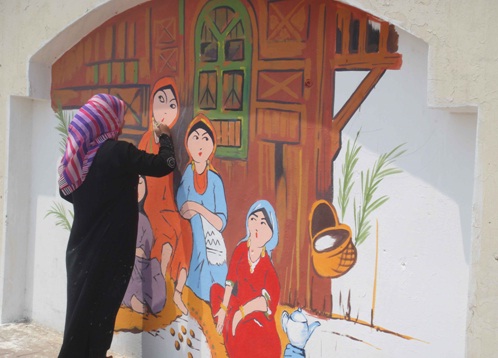Women Fighting for Peace in Iraq
On December 6, the U.S. Institute of Peace facilitated a discussion featuring two women NGO leaders from Iraq whose USIP-supported projects enable them to promote positive participatory roles for women as peacebuilders and provide mechanisms and strategies to combat discrimination and violence against women in Iraq.
 As U.S. troops withdraw from Iraq and the U.S. role transitions from military-led to civilian-led engagement, many questions linger about Iraq’s governance, stability and security. How the transition will impact the status of women and vulnerable groups is of critical importance. Through its support of capacity building among women leaders and organizations that work on gender-equity and peacebuilding in Iraq, the U.S. Institute of Peace’s Iraq Priority Grant Program has worked since 2004 to create indigenous institutions that contribute positively to conflict prevention.
As U.S. troops withdraw from Iraq and the U.S. role transitions from military-led to civilian-led engagement, many questions linger about Iraq’s governance, stability and security. How the transition will impact the status of women and vulnerable groups is of critical importance. Through its support of capacity building among women leaders and organizations that work on gender-equity and peacebuilding in Iraq, the U.S. Institute of Peace’s Iraq Priority Grant Program has worked since 2004 to create indigenous institutions that contribute positively to conflict prevention.
On December 6, the U.S. Institute of Peace facilitated a discussion featuring two women NGO leaders from Iraq whose USIP-supported projects enable them to promote positive participatory roles for women as peacebuilders and provide mechanisms and strategies to combat discrimination and violence against women in Iraq. The documentary “Be Tender with Flasks” will be presented, featuring the work of women activists and religious leaders who speak strongly against violence against women and what are known as “Honor Killings.”
Speakers
- Ambassador Donald Steinberg – keynote remarks
Deputy Administrator of U.S. Agency for International Aid (USAID) - Dr. Abiodun Williams – Introductory Remarks
Senior Vice President, Center for Conflict Management, USIP - Ms. Susan Arif Maroof – Featured Panelist
Director, Women Empowerment Organization, Iraq - Ms. Zainab Sadiq Jaafar – Featured Panelist
Director, Al-Mustaqbal Center for Women, Iraq - Dr. Kathleen Kuehnast – Discussant
Director, Gender and Peacebuilding Center, USIP - Ms. Manal Omar – Discussant
Director, Iraq, Iran & North Africa Programs, USIP - Ms. Raya Barazanji – Moderator
Grant Program Officer, USIP



